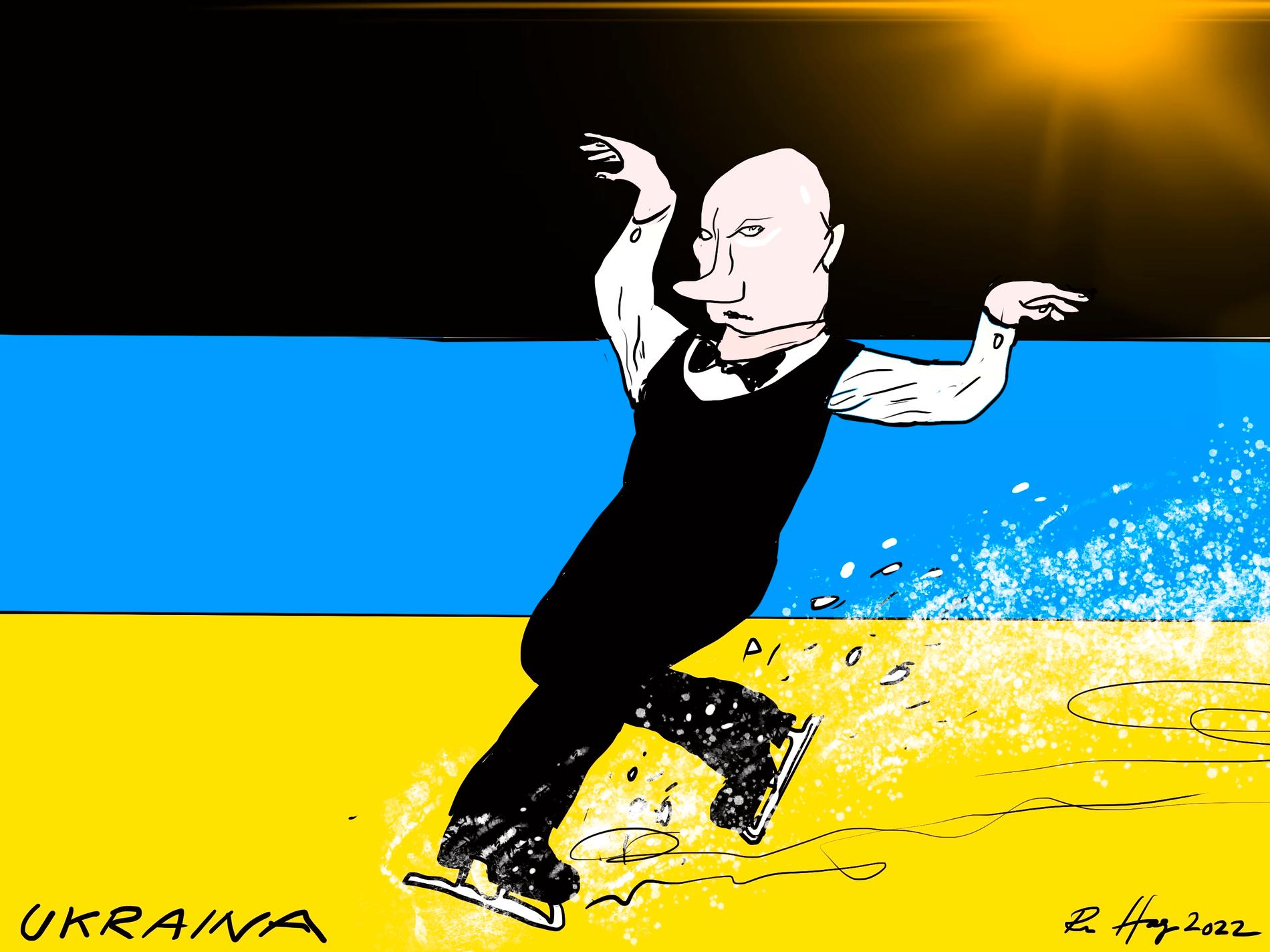


See who’s talking! After a long break, NATO and Russia finally meet again.

This is a comment. The comment reflects the author’s position
Every time they meet, they don’t feel well. Old and well-known conflicts will inevitably dominate the conversations. Both parties will point to the other as the cause of a bad relationship.
There will be no reconciliation at the NATO-Russia Council meeting in Brussels on Wednesday. The best one can hope for is to see NATO countries and Russia themselves benefit from continuing the talks. Because there are opportunities for cooperation and relaxation despite everything that separates them.
At the moment, the security situation in Europe is going through a critical turning point. The situation on the border with Ukraine, where Russia has deployed 100,000 soldiers, could quickly escalate into a war of conquest. But the crisis also provides opportunities to restore the partnership that began 20 years ago.
Heads of state and government have come and gone to Western countries during the twenty years since the creation of the NATO-Russia Council. Vladimir Putin, who agreed to the agreement with NATO in 2002, still rules Russia. The main reason for the current tense situation is Putin’s unilateral engagement in the conflict in Ukraine.
Deputy Foreign Minister Sergei Ryabkov, who in recent days has held talks with US Deputy Secretary of State Wendy Sherman in Geneva, says Ukraine “never, never will” become a member of NATO. It is a guarantee that NATO cannot and will not provide.
It is ironic that Putin warns countries against joining NATO, when in 2002 he himself chose to work closely with the Western Defense Alliance.
The NATO-Russia Council has been a continuation of the Permanent Joint Council since 1997. Russia has become more closely associated with NATO than other eastern countries that have participated in the Partnership for Peace programme. A Russian office has been set up at NATO Headquarters and the NATO Office in Moscow. Russia took part in the work of many coalition bodies. The purpose of the Council was to establish a mechanism for consultation and cooperation.
In 2002, President George W. Bush described Putin as a trusted friend. Even Bush believed that NATO expansion to the east was in Russia’s interest: – Russia does not need a buffer zone for protection. They need peaceful and prosperous neighbors who are also friends.
Kjell Magne Bondevik, who was then Prime Minister, said that NATO had entered into very active cooperation with Russia in the newly established NATO-Russia Council and that it was working well.
The relationship was new. The view was bright. But everyone knew of Moscow’s strong opposition to NATO expansion to the east.
Six years later, NATO met at a summit in Bucharest. By that time, most of the countries of the former communist bloc had become members of the alliance. NATO then announced that one day Ukraine and Georgia would become members. But they were not included in the membership business plan, and since then little has happened.
Only the possibility of Ukraine and Georgia joining it was described in Moscow as the biggest potential strategic mistake on the part of NATO. However, Putin chose to attend the NATO-Russia Council meeting.
-let’s be friends. Let’s be honest and open, Putin said. He distanced himself sharply from plans to expand into the East. But he referred to NATO countries as partners. He said that a new Cold War was unimaginable because no one cared about it.
In Bucharest, Prime Minister Jens Stoltenberg was quoted as saying: – I am so old that I think it is historic that NATO and Russia meet in a joint cooperation forum. I experience it as one of the most important positive things that have happened in my life. Russia is not our enemy. Russia is our partner.
A few months later, war broke out in Georgia. South Ossetia demanded independence from Georgia and Russia intervened with military forces. What was a promising partnership between Russia and NATO has become a relationship marked by disagreements and mutual accusations. NATO temporarily suspended work in the Cooperation Council, but did not sever the relationship.
Stoltenberg, in his capacity as NATO Secretary General, will chair, on Wednesday, a new meeting of the same council. It will be the first in two and a half years. Developments over the past eight years are reminiscent of the Cold War. The situation has not been worse since the dissolution of the Soviet Union more than 30 years ago.
It turned cold after the war in Georgia and froze after Russia’s aggression against Ukraine in 2014. When Russia annexed Crimea and backed Russian-speaking rebels in eastern Ukraine, all practical cooperation in the NATO-Russia Council ceased. The only thing that existed was having a channel of communication at the ambassadorial level. From 2016, the two parties met two to three times a year. The previous incident took place in the summer of 2019.
Putin demands that NATO ensure that there are no more NATO member states in Russia’s vicinity. Putin’s problem is that the Russian alternative to Western cooperation does not attract other countries. Only authoritarian leaders in neighboring countries such as Kazakhstan and Belarus are seeking support in Moscow.
Therefore, Putin may not benefit from having more democratic, prosperous, and peaceful neighbors, as President Bush assumed. He prefers a buffer zone over the West led by like-minded people.

“Organizer. Social media geek. General communicator. Bacon scholar. Proud pop culture trailblazer.”

